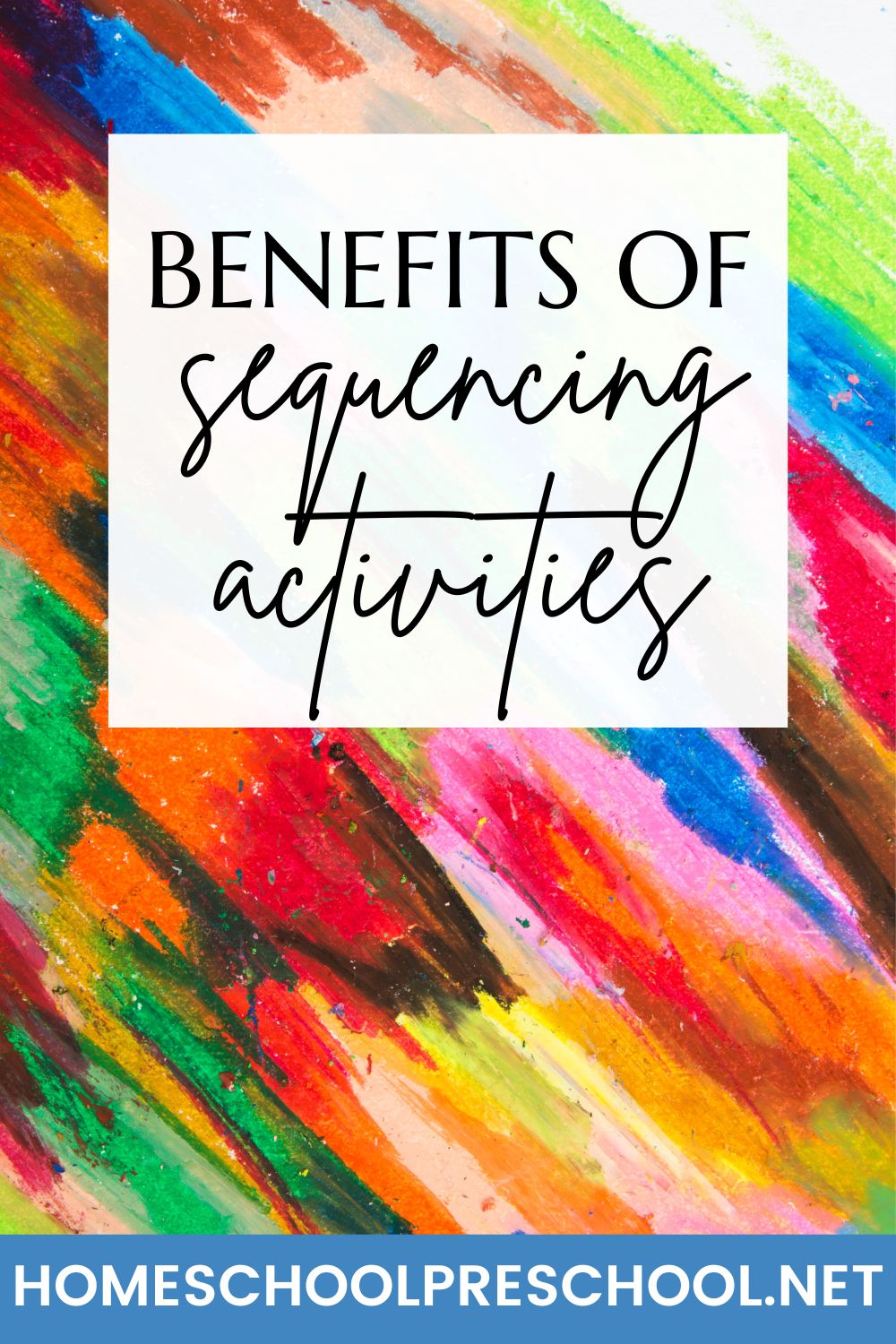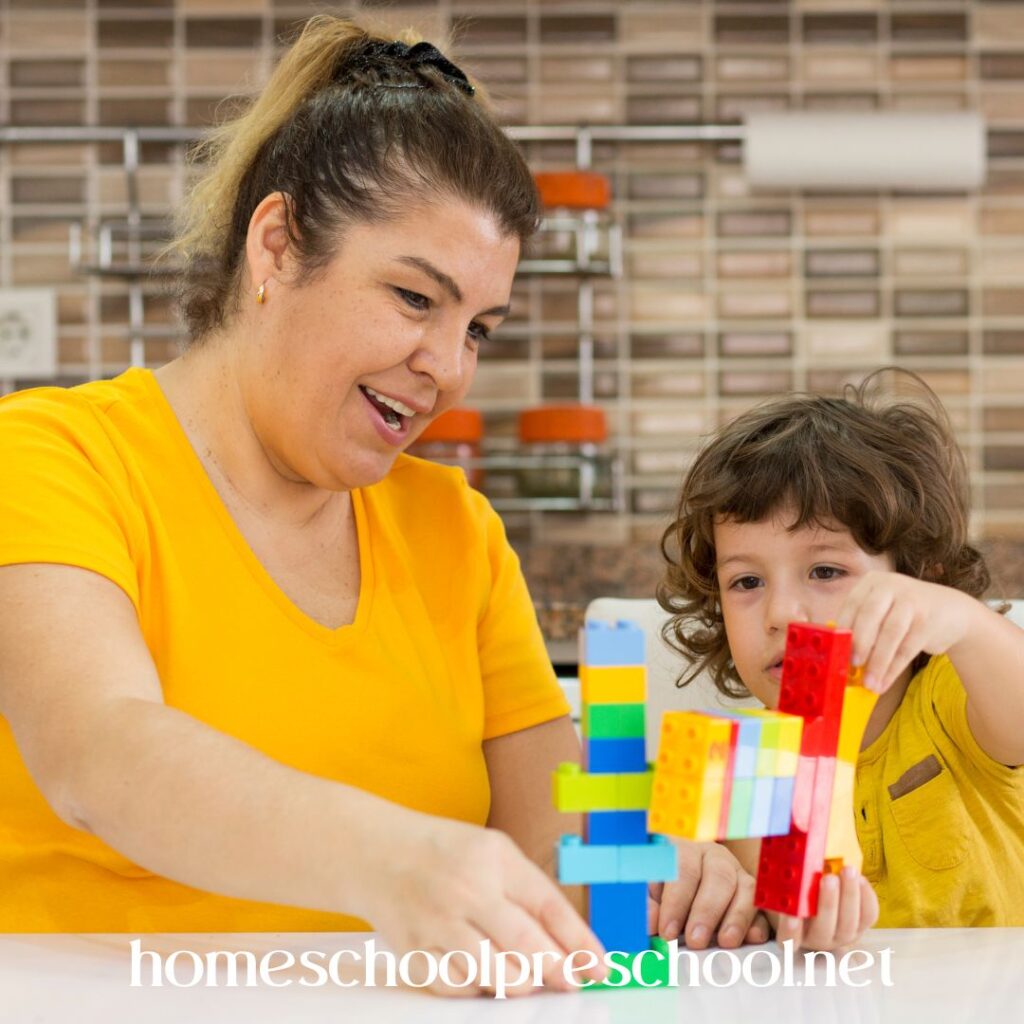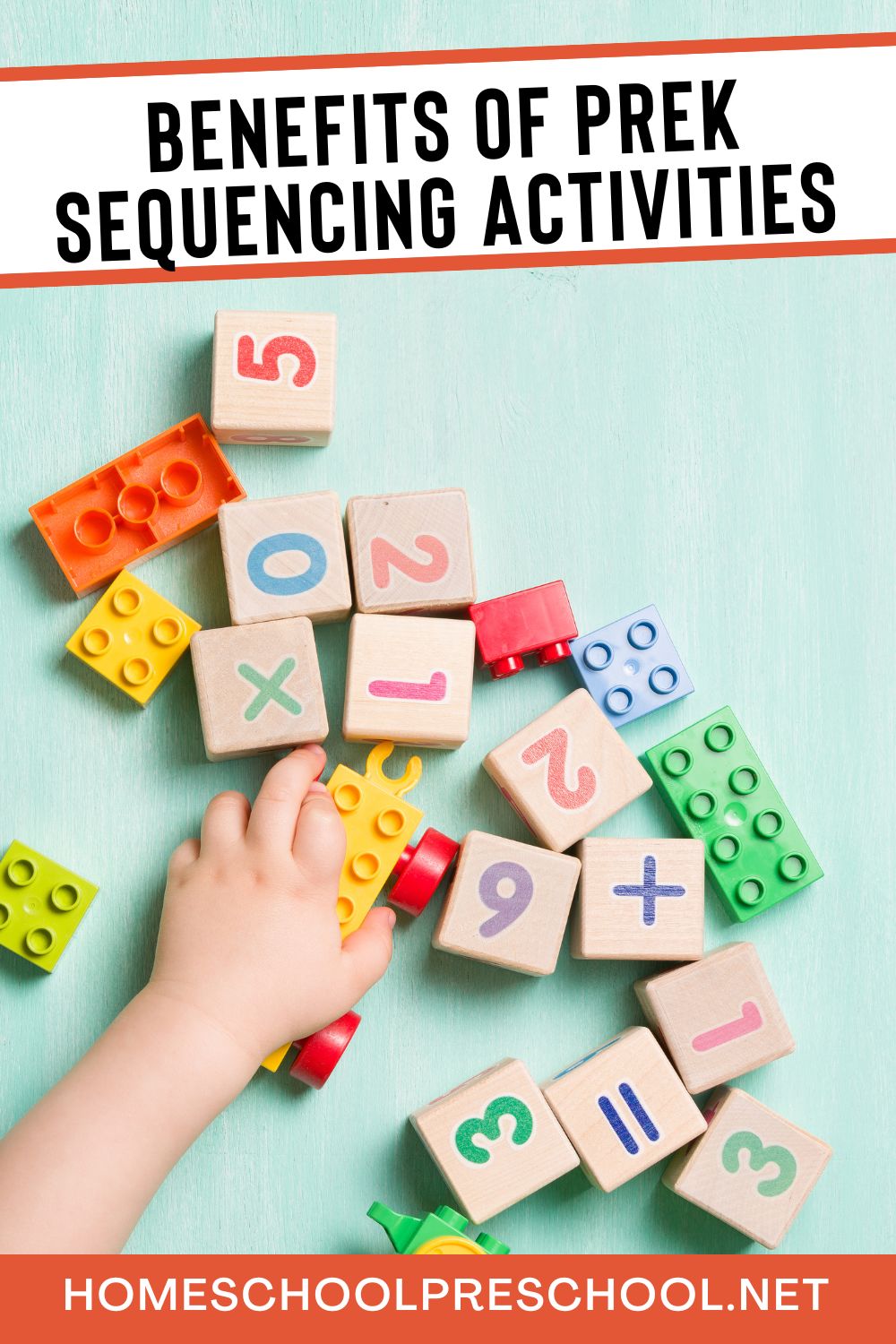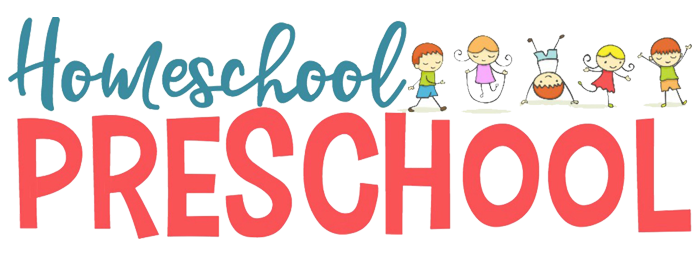Benefits of Sequencing Activities
Do you want to help your preschoolers strengthen their cognitive and problem-solving skills? If so, you need to know the benefits of sequencing activities in a preschool setting!
Sequencing activities for preschoolers offer an engaging and dynamic way to foster critical thinking in young students and support the learning process.
By teaching children how to sequence events, ideas, or objects logically, these kinds of activities can strengthen their ability to problem solve and organize information – all important skills for success both now as they learn basic concepts and later on when tougher challenges arise.
Let’s explore how sequencing exercises can benefit preschoolers’ growth by helping them become better communicators, deeper thinkers, more analytical readers, stronger mathematicians…and so much more!

Benefits of Sequencing Activities
Sequencing activities help preschoolers learn how to think and solve problems. It teaches them how to put things in order and make sure they are logical.
These activities help children become better communicators, readers, and math learners. They also help strengthen their problem-solving skills which will be important as they get older.
Sequencing activities also help preschoolers understand how to organize information and make decisions.
This helps them become better critical thinkers, which is essential for success in school, work, and life.
Additionally, sequencing activities can be fun for kids! By making the activity hands-on or playful, children can engage with the material more actively.
Moreover, when their learning is interactive and engaging, it increases their ability to remember the material.
So if you want your preschoolers to reach their full potential, consider adding sequencing activities into your curriculum. They can help your students become more well-rounded and better prepared for the future!

Sequencing Activities Help Children Communicate
Sequencing activities can be a fun and effective way to help preschoolers become better communicators.
By following a sequence, children learn how to organize their thoughts logically and express themselves more clearly.
Furthermore, these activities provide opportunities to practice important skills such as listening, problem-solving, and turn-taking.
With the help of sequencing activities, kids can not only strengthen their social communication skills but also develop their emotional and cognitive abilities.
Engaging in these activities regularly can give children the confidence they need to communicate more effectively with peers and adults alike, setting them up for success in the classroom and beyond.

Sequencing Activities Help Strengthen Problem-Solving Skills
Sequencing activities are a fantastical way to boost your young students’ problem-solving abilities. These activities help children identify patterns, comprehend cause and effect, and create logical connections between different elements.
They provide an excellent foundation for analytical thinking and encourage children to think creatively when facing codification challenges. It’s important to make sequencing activities fun and interactive to help maintain children’s interest and engage their attention.
These games can include puzzles, building blocks, and matching activities that present outcomes to be connected in a precise order, challenging children to use their problem-solving skills to complete the task.
By practicing sequencing activities, young students will gradually learn how to think critically, make logical comparisons, and strengthen their problem-solving abilities to apply them in real-life situations.
Whether at home or in class, encourage your students to embrace sequencing activities and nurture their problem-solving skills.

Sequencing Tasks Boost Cognitive Development
As we grow and learn, our cognitive abilities play a major role in how we process information and make decisions. Sequencing tasks provide a fantastic platform for developing cognitive processing in a fun and engaging way.
These tasks involve breaking down a larger task into smaller, more manageable steps and then arranging those steps in the correct order to complete the task successfully.
Not only does this strengthen problem-solving and planning skills, but also memory and attention to detail, both of which are crucial for success in academics, career, and life in general.
Encourage your children or students to engage in sequencing tasks daily and watch their cognitive abilities soar to new heights!

More Benefits of Sequencing
Preschool is a wonderful time for little ones to begin exploring the world around them and to develop a solid foundation for future learning.
One key area that educators and parents alike should focus on during this time is sequence recognition. By mastering this important skill, preschoolers can improve both their reading comprehension and math abilities.
Through regular practice and exposure to sequencing activities, they’ll learn how to better organize information and form connections between events. Not only will this help them excel in the classroom, but it will also set them up for success in other areas of life.
So if you’re looking for a way to support your young learner’s development, consider incorporating sequence recognition activities into your daily routine. The benefits are truly endless!

Sequencing exercises are a great way to support the growth and development of preschoolers. These activities help children become better communicators, readers, and math learners, as well as strengthen their problem-solving skills.
Sequencing exercises also help children understand how to organize information and make decisions, which is essential for success in school, work, and life. By making the activity hands-on or playful, children can engage with the material more actively and increase their ability to remember it.
Through regular practice and exposure to sequencing activities, they’ll learn how to better organize information and form connections between events – setting them up for success in other areas of life.
So if you want your preschooler to reach their full potential, consider adding sequencing activities into your curriculum. They can help your students become more well-rounded and better prepared for the future!
